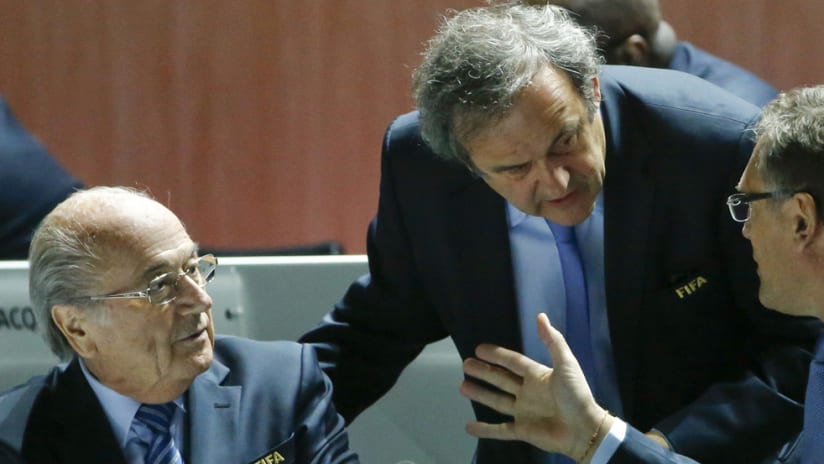After rumors swirled on Wednesday, FIFA officially announced on Thursday that president Sepp Blatter has been provisionally suspended for 90 days from soccer-related activity at the national and international level.
The suspension was handed down by the adjudicatory chamber of FIFA's Independent Ethics Committee.
Per a FIFA statement, Blatter "is not allowed to represent FIFA in any capacity, act on the organization’s behalf, or communicate to media or other stakeholders as a FIFA representative" during the course of the ban.
Issa Hayatou, as the longest-serving vice president on FIFA's Executive Committee, will take over as acting president. Hayatou is also the president of the Confederation of African Football (CAF).
In addition to Blatter's ban, the Ethics Committee also issued a suspension of the same length to UEFA president Michel Platini, who has been widely seen as a potential candidate for FIFA's top job after Blatter indicated his intention to step down amid the organization's ongoing corruption scandal.
The bans stem from an investigation by Swiss authorities into a "disloyal payment" of 2 million Swiss francs ($2.05 million) from Blatter to Platini for contract work from 1999-2002, with potential charges against Blatter termed “criminal mismanagement or misappropriation.”
In addition to bans for Blatter and Platini, the Ethics Committee also issued a provisional 90-day ban to FIFA secretary general Jérôme Valcke. This decision follows FIFA’s announcement on Sept. 17 that the organization had put Valcke on leave and released him from his duties effective immediately. That ban stems from allegations that Valcke sold World Cup tickets above face value.
Finally, FIFA also announced that former vice president Chung Mong-joon has been banned for six years and fined 100,000 Swiss francs ($103,000) following an investigation into the bidding process for the 2018 and 2022 World Cups. Chung was found guilty of infringing on five articles of the FIFA Code of Ethics, including those on general rules conduct, confidentitality and duty of disclosure, collaboration and reporting.










